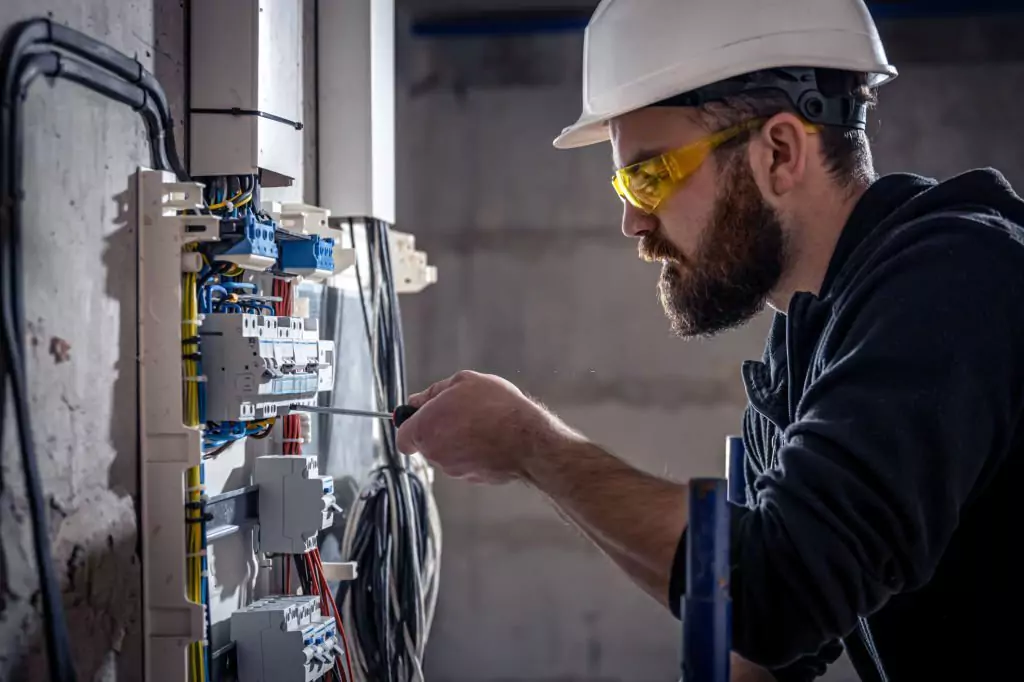Introduction: Understanding the Importance of House Rewiring
House rewiring is an essential aspect of maintaining a safe and efficient electrical system in your home. Over time, the wiring in a house can deteriorate, leading to potential hazards such as electrical fires and electrocution. It is crucial to be aware of the signs that indicate the need for house rewiring, such as flickering lights, frequent tripping of circuit breakers, and outdated wiring systems.

Eligibility Criteria for Free House Rewiring
In some cases, homeowners may be eligible for free house rewiring through government schemes and grants. The eligibility criteria for these programs can vary, but they often include income-based eligibility, age-based eligibility, and other specific criteria. Income-based eligibility typically requires homeowners to have a low income or be receiving certain government benefits. Age-based eligibility may be available for older homeowners who may have difficulty affording the cost of rewiring their homes.
Government Schemes and Grants for Free House Rewiring
Various government schemes and grants are available to assist homeowners with the cost of house rewiring. These programs aim to improve the safety and energy efficiency of homes while reducing the financial burden on homeowners. Some examples of these schemes and grants include the Energy Company Obligation (ECO) scheme, the Warm Home Discount scheme, and local authority grants.
The Energy Company Obligation (ECO) scheme is a government initiative that provides funding for energy efficiency improvements in homes. Under this scheme, eligible homeowners may be able to receive free or heavily subsidized house rewiring. The Warm Home Discount scheme is another program that offers financial assistance to low-income households to help with their energy bills. In some cases, this assistance can be used towards the cost of house rewiring. Additionally, local authorities may offer grants or funding opportunities specifically for house rewiring projects.
How to Apply for Free House Rewiring
To apply for free house rewiring through government schemes and grants, homeowners will need to follow a specific application process. The exact steps may vary depending on the program, but generally, the process involves the following:
1. Research and identify the relevant schemes and grants available in your area.
2. Check the eligibility criteria for each program to determine if you qualify.
3. Gather the necessary documents and information required for the application.
4. Complete the application form accurately and provide any supporting documentation.
5. Submit the application within the specified timeframe.
It is important to note that the demand for these programs may be high, and there may be limited funding available. Therefore, it is advisable to apply as soon as possible and ensure that all required documentation is provided to increase your chances of approval.
Finding the Right Contractor for Free House Rewiring
When it comes to house rewiring, it is crucial to find a reputable and experienced contractor to carry out the work. The quality of the rewiring job can significantly impact the safety and efficiency of your electrical system. Here are some tips for finding the right contractor:

1. Research and gather recommendations: Ask friends, family, and neighbors for recommendations of contractors they have used for house rewiring projects. Additionally, conduct online research to find contractors with positive reviews and a good reputation.
2. Check credentials and licenses: Ensure that the contractor you choose is licensed and certified to perform electrical work. This will give you peace of mind knowing that they have the necessary skills and knowledge to complete the job safely and effectively.
3. Obtain multiple quotes: Request quotes from several contractors to compare prices and services. Be wary of significantly low prices, as this may indicate subpar workmanship or the use of inferior materials.
4. Ask for references: Request references from previous clients and follow up with them to inquire about their experience with the contractor. This will give you insight into the contractor’s professionalism, reliability, and the quality of their work.
5. Seek warranties and guarantees: Inquire about any warranties or guarantees offered by the contractor. A reputable contractor should stand behind their work and be willing to address any issues that may arise after the rewiring project is completed.
Understanding the Process of Free House Rewiring
Once you have been approved for free house rewiring and have selected a contractor, it is essential to understand the process involved. House rewiring typically involves several steps, including:
1. Assessment and planning: The contractor will assess the current electrical system in your home and develop a plan for the rewiring project. This may involve determining the scope of work, identifying any potential challenges, and creating a timeline for completion.
2. Removal of old wiring: The existing wiring in your home will be removed to make way for the new wiring. This process may involve cutting into walls, ceilings, and floors to access the wiring.
3. Installation of new wiring: The new wiring will be installed according to the plan developed by the contractor. This may include running wires through walls, installing new outlets and switches, and connecting the wiring to the electrical panel.
4. Testing and inspection: Once the rewiring is complete, the contractor will test the electrical system to ensure it is functioning correctly and safely. An inspection may also be required by local authorities to ensure compliance with electrical codes and regulations.
5. Restoration: Any areas that were cut into or damaged during the rewiring process will be repaired and restored. This may involve patching walls, repainting, or replacing flooring.
Upgrading Your Electrical System for Free
In addition to house rewiring, homeowners may have the opportunity to upgrade their electrical system for free through government schemes and grants. Upgrading your electrical system can offer several benefits, including improved safety, increased energy efficiency, and enhanced functionality. Some common types of upgrades include:
1. Upgrading the electrical panel: An outdated electrical panel may not be able to handle the electrical demands of modern appliances and devices. Upgrading to a larger capacity panel can ensure that your electrical system can safely accommodate your needs.
2. Installing ground fault circuit interrupters (GFCIs): GFCIs are designed to protect against electrical shocks and are typically installed in areas where water is present, such as kitchens and bathrooms. These devices can quickly detect electrical faults and shut off power to prevent accidents.
3. Adding surge protection: Surge protectors can safeguard your electrical system from power surges caused by lightning strikes or fluctuations in the power grid. These devices can prevent damage to sensitive electronics and appliances.
4. Installing energy-efficient lighting: Upgrading to energy-efficient lighting, such as LED bulbs, can significantly reduce your energy consumption and lower your electricity bills. These bulbs also have a longer lifespan, reducing the need for frequent replacements.
Benefits of Free House Rewiring
There are several benefits to taking advantage of free house rewiring programs:
1. Improved safety: House rewiring can eliminate potential hazards such as faulty wiring, overloaded circuits, and outdated electrical systems. This can significantly reduce the risk of electrical fires, electrocution, and other accidents.
2. Increased energy efficiency: Old wiring systems may be inefficient and consume more energy than necessary. By rewiring your home, you can ensure that your electrical system operates at optimal efficiency, reducing your energy consumption and lowering your electricity bills.
3. Enhanced property value: Upgrading your electrical system through house rewiring can increase the value of your property. Potential buyers are often attracted to homes with modern and safe electrical systems, making your home more marketable.
Precautions to Take During Free House Rewiring
While house rewiring is essential for maintaining a safe and efficient electrical system, it is crucial to take precautions during the process to protect yourself and your property. Here are some safety precautions to consider:

1. Turn off the power: Before any work begins, ensure that the power to the area being rewired is turned off at the electrical panel. This will prevent the risk of electric shock.
2. Communicate with the contractor: Clearly communicate your expectations and any specific requirements to the contractor. This includes discussing any areas of your home that may be off-limits or require special care during the rewiring process.
3. Protect your belongings: Remove or cover any valuable or delicate items in the areas where the rewiring work will take place. This will protect them from dust, debris, and potential damage.
4. Follow safety guidelines: Adhere to any safety guidelines provided by the contractor, such as avoiding certain areas or refraining from using electrical appliances during the rewiring process.
Conclusion:
In conclusion, house rewiring is a crucial aspect of maintaining a safe and efficient electrical system in your home. By taking advantage of government schemes and grants for free house rewiring, homeowners can alleviate the financial burden of this essential maintenance task. In this article, we discussed how to get your house rewired for free in detail.
By following the application process, finding the right contractor, and understanding the rewiring process, homeowners can enjoy the benefits of improved safety, increased energy efficiency, and enhanced property value. It is important to take precautions during the rewiring process to protect yourself and your property. Overall, free house rewiring programs offer a valuable opportunity for homeowners to ensure the safety and efficiency of their electrical systems.
